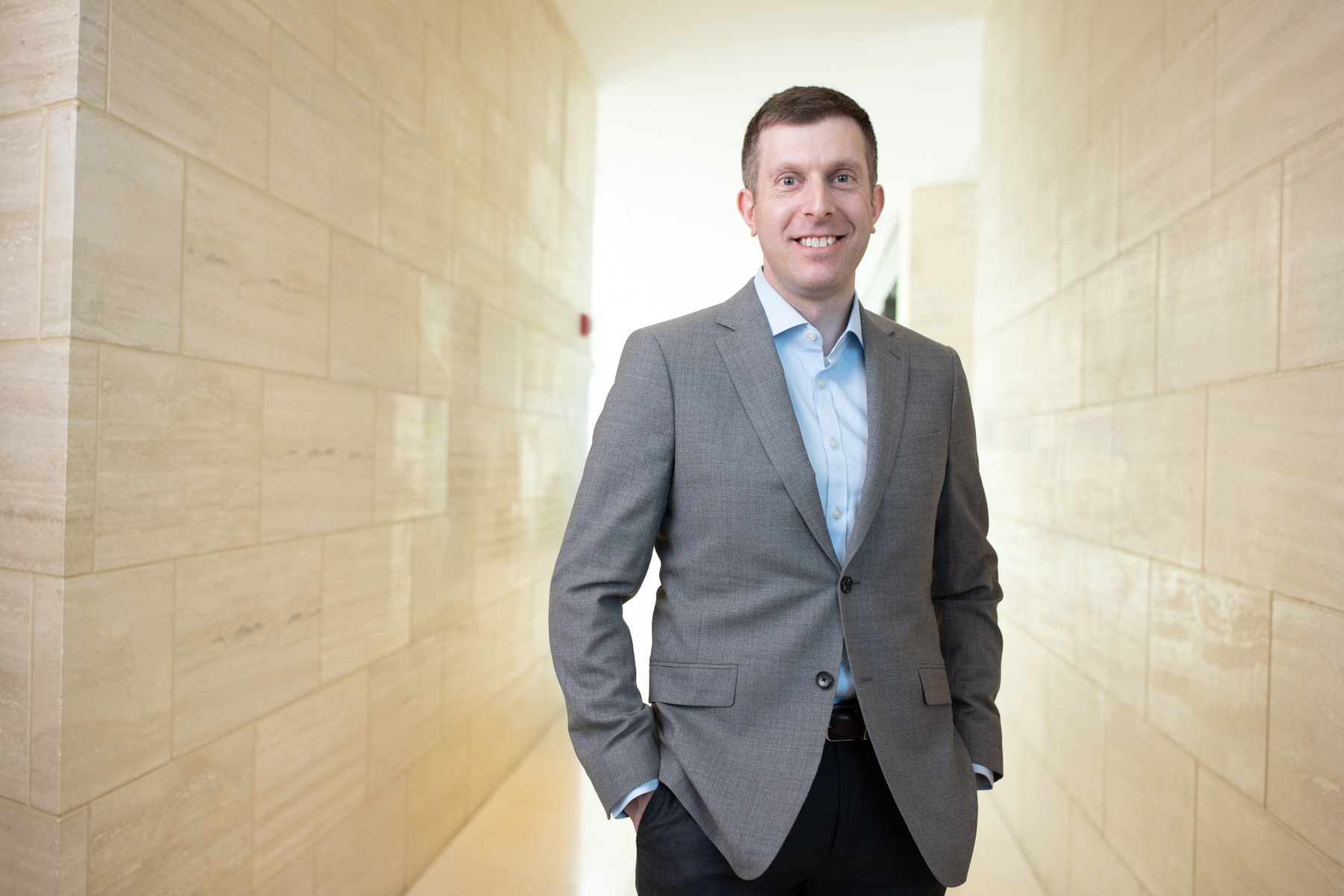by Buck Institute
June 25, 2020 . BLOG
Stay Positive and Stay 6 Feet Apart
 By Dr. John Newman, Assistant Professor at Buck Institute and Assistant Professor, Division of Geriatrics at UCSF Medicine
By Dr. John Newman, Assistant Professor at Buck Institute and Assistant Professor, Division of Geriatrics at UCSF Medicine
This is my third and final (for now!) blog providing my perspective on older adults and COVID-19. In this post I’m thinking about how we can all move forward productively and healthily, even as the pandemic continues and daily new cases stubbornly refuse to drop to zero. As I write this, there are areas in the US where cases are spiking badly, and in those areas older adults should strongly consider returning to the stricter precautions of early April. But many other places remain in the gray zone of “Phase 2”, and I want to share some optimism about ways we can stay connected and engaged in society.
First, and I want to be so clear on this, masks and 6 ft of physical distancing should be your reality for the foreseeable future. This is true regardless of your age or pre-existing conditions. More and more data is emerging at how effective masks can be at reducing transmission of the virus if most of us wear them. That is good news! If everyone behaves as if they are infectious and takes precautions to avoid transmitting the virus, we can make a big difference in stopping its spread. I really took to heart Dr. Matt Willis’ words in his webinar last week. He said, “I really hope that people recognize that a gym opening up or a hair salon opening up doesn’t mean it’s safe to do that. It means that you are free to do that.” It’s still up to us to make smart decisions for ourselves and our community.
So if we’re wearing these uncomfortable masks on our faces and we’re not hanging out in our favorite restaurants, what is there to be optimistic about? For one, I’m really excited about the rapid rise of telemedicine. Telemedicine isn’t perfect, and will never replace every in-person visit – I’m a bit old fashioned about the value of talking to and examining someone in person. I even love house calls! But you can do an awful lot over video, and it’s literally a lifesaver in a pandemic. Medicine (and you!) rose to the occasion, rolling out telemedicine faster than anyone could have dreamed possible. We can manage chronic conditions and start to investigate new problems without the risk of infection that comes with a trip to the doctor’s office, not to mention the hassle of battling traffic and finding a parking space. Telemedicine is here to stay as a normal part of routine medical care, and it will be to everyone’s benefit.
The number one question we’re hearing is about interacting with grandkids again. There absolutely are safe ways to interact. The safest is by using digital tools, or even just phone calls. The side benefit of learning to use new digital tools is that we know learning new things is good for the aging brain. However, if you’re craving something more physically connected, socially distant walks or hikes are another possibility. The key for everyone to remember is to maintain 6 feet of distance and to keep masks on. Because of the physical presence, a walk outdoors feels much more connected, but it also does increase the risk of spread. If you are immune-compromised or with pre-existing conditions, you probably want to stay sheltered and stick to digital visits. I still recommend against doing anything together indoors with anyone you don’t already live with. Being together indoors, especially sharing a meal where everyone can’t stay masked, is much risker than being outdoors. And if you live in one of the new hotspots, you should be sheltering-in-place again.
Going back to the digital tools and learning new things angle, I think this time is a great opportunity for people to get into new and healthier habits. Digital tools have erased a lot of scheduling and location-based constraints, and are giving us the opportunity to attend lectures or concerts that we wouldn’t normally be able to. Because this is a time of disruption, it can also be a good time to reset habits into healthier ones. Getting more exercise and eating more veggies and whole grains is something that we can all benefit from. And it can improve your resilience and immune response in case you do get an infection. Kaiser is evening offering a free subscription to the Calm meditation app, if you are hoping to use this time to learn more mindfulness.
The pace of scientific advancements and new modes of collaboration are another source of optimism during this time. Tracking the day-to-day science developments can be exhausting and not super-useful because most results are preliminary, but treatments are moving to the clinic at a shocking speed. Randomized controlled trials that usually take years are being completed in months, although even for these “gold standard” studies we should wait for full publication after peer review and not jump to act based on a press release. The first vaccine trials are going to move into their final stage as soon as next month, with efficacy data possible (but not promised!) by Thanksgiving. This has absolutely never been accomplished before. The incredible response of the global scientific community will absolutely result in paradigm shifts about open science and collaboration that will benefit the scientific hunt for cures in bold new ways.
While this virus is circulating, it is definitely harder to do everything we want to do while also protecting our own health, but protecting our own health is the most important thing we can do. Especially because by protecting our own health we protect everyone around us, too. During this time, I encourage you to stay active, stay connected, and stay healthy!

SHARE